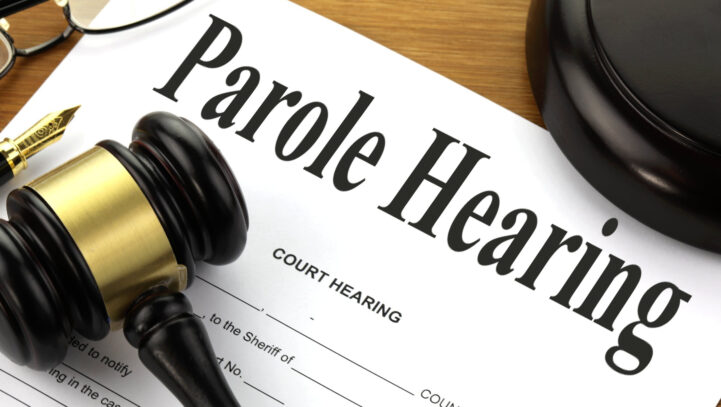Preparing For Parole
PREPARING FOR PAROLE
What type of cases do the Parole Board consider?
The Secretary of State is required by law to refer certain cases to the Parole Board. The purpose of this is to enable the Parole Board to review the detention of that prisoner and decide whether they are safe to be released. The types of cases which are referred are:
– Recalled prisoners
– Prisoners serving Extended Determinate Sentences (EDS)
– Prisoners serving Life sentences
– Prisoners serving sentences of imprisonment for public protection (IPP)
– Prisoners where the Secretary of State has exercised the power to detain and refer the case to the Parole Board
What is a Parole Board hearing?
A Parole Board hearing is one way the Parole Board will review the risk that a prisoner poses in order to determine whether they meet the statutory test for release (and/or open conditions if the prisoner is a lifer or IPP). The Parole Board will always conduct a paper review initially (known as the Member Case Assessment or MCA) and may progress the case to an oral hearing if fairness dictates an oral hearing or if it would not be possible for decision to be made on the papers.
Who attends a Parole Board hearing?
The hearing is overseen by a Panel Chair, this is an experienced member of the Parole Board who oversees the case in order to ensure a fair and effective hearing. The Chair will sit with up to two additional panel members. Together they make up “The Panel”. Panel members can be psychologists or Judges or what is known as independent members. Although it should be noted that all Parole Board members are independent. Independent members can include people who have previously worked in the probation service or prison system or even outside of the criminal justice system.
In addition to the panel members the prisoner will also attend the hearing as well as their legal representative if they have one.
Certain witnesses are also required to attend oral hearings. The prisoner’s community based probation officer (COM) will always be required to attend as will their prison based probation officer (POM). Additional witnesses can be directed to attend by the Panel Chair or requested by the prisoner and can include prison based psychologists and psychiatrists, independent (those instructed by the prisoner) psychologists and psychiatrists, drug workers, security officers and sometimes police officers.
What happens at the hearing?
A Parole Bord hearing usually follows a set procedure. This can be adapted depending on the case. The panel chair will always introduce themselves and the other panel members and will confirm the attendance of all parties.
The Chair will then confirm that the prisoner/legal representative have the same dossier as the panel and will confirm the application the prisoner is making. The Chair will then discuss the order of witnesses. This is usually agreed with the legal rep.
The order of witnesses does differ but a typical example would be as follows:
1. POM
2. Prisoner
3. Psychologist
4. COM
If there is a 2 or 3 member panel then each of the panel members which have the opportunity to ask questions of each witness. Once the panel have finished questioning one witness then the legal rep will be able to ask further questions. This gives us the opportunity to raise any issues that our client want us to and also to challenge evidence already given if needed.
The prisoner can give evidence at their hearing and the same format as above will apply. Although it is not a requirement for a prisoner to give evidence, most do choose to. It can also be very helpful if they do give evidence as it gives them the opportunity to participate in the hearing and demonstrate their insight and commitment to living an offence free life in the future.
Once all the questions have been asked the panel chair will invite the legal representative to give closing submissions. This gives the prisoner the last word (via their legal rep) to highlight the areas they want the panel to pay particular attention to and to put forward the argument that the prisoner meets the test for release (or open conditions if applicable).
Is a legal representative essential?
There is a lot of preparation that goes into an oral hearing and good case management is essential.
Legal reps are excellent at navigating the parole process and managing cases. We are able to identify and act upon issues that need to be addressed in advance of the hearing and can request additional directions from the Panel Chair. This helps reduce the risk of issues arising on the day which could result in an adjournment or deferral. Although sometimes this is unavoidable.
As well as active case management and chasing reports etc legal reps are able to guide prisoners through the process to ensure they are fully prepared for their hearings. Legal reps will ensure that all relevant evidence is put before the Parole Board and will make sure their clients give the best evidence in support of their application. Legal reps can also help to navigate any issues which may arise during the course of the hearing.
Is legal aid available?
Yes. Legal aid is available for all cases before the Parole Board as long as the means test is satisfied. If someone does not qualify for legal aid then this work can be undertaken on a private basis for a fixed fee.
Conclusion
A Parole Board hearing is a daunting experience. There is a lot at stake for the prisoner. The Parole Board have the power to direct release which means that the parole hearing can result in the prisoner achieving their liberty once again.
How can we help you or your family member?
Having an experienced legal representative to guide you or your family member through the parole process is the best way of ensuring a fair an effective parole review. It can also help to strengthen the release application being made.
We will provide you with up front and honest advice. We will discuss the positives of your case with you and assist you in tackling the negatives. We will guide you through the entire process and ensure that you are fully prepared to attend your parole hearing.
It is therefore worth instructing a legal representative to assist you or your family member through the parole process to ensure that you are in the strongest possible position to attend your parole hearing.
If you have any questions about parole or would like a to discuss representation then please do not hesitate to contact us .




